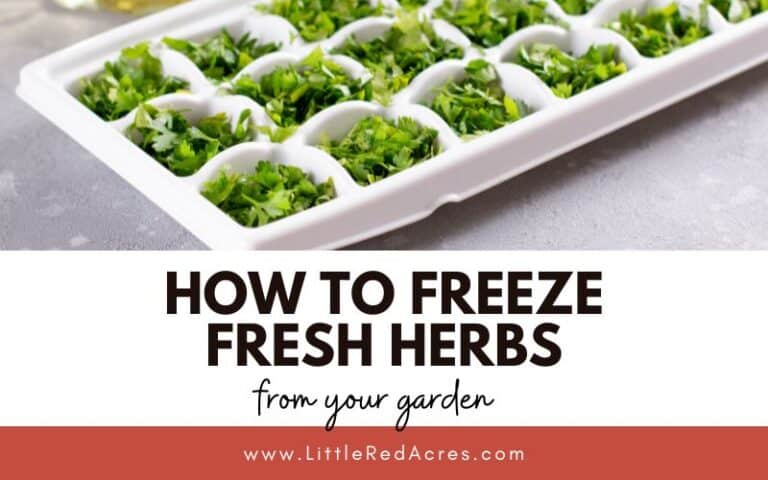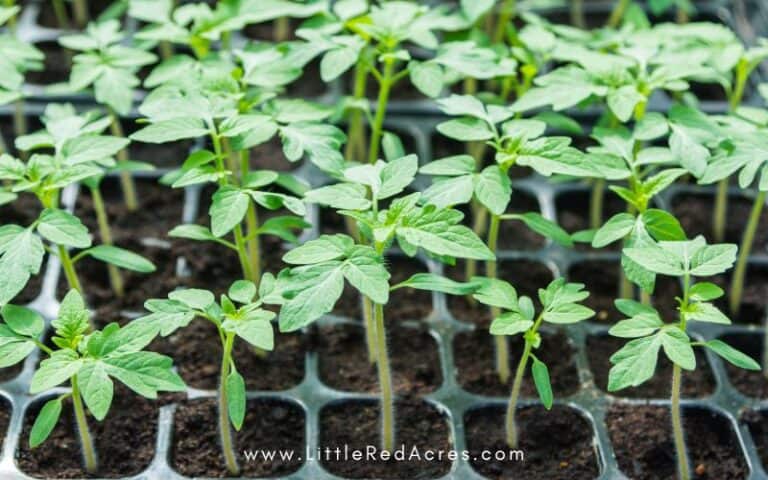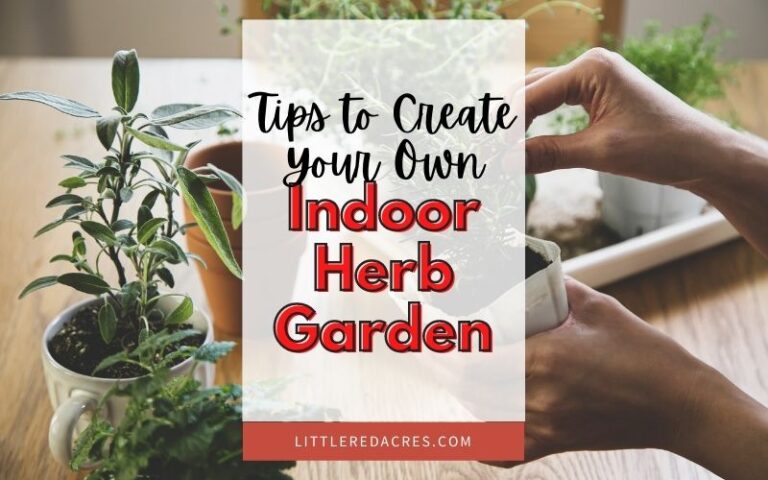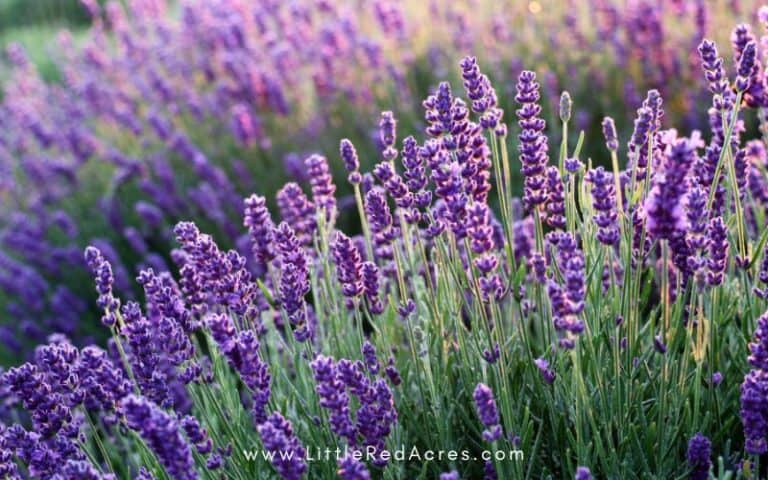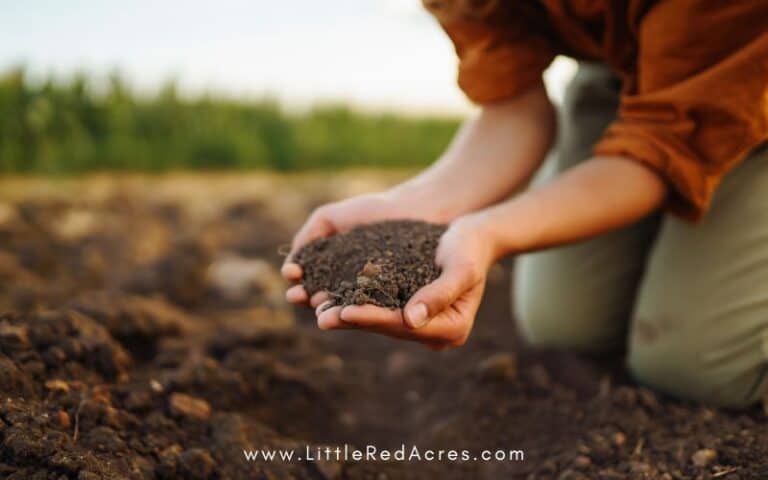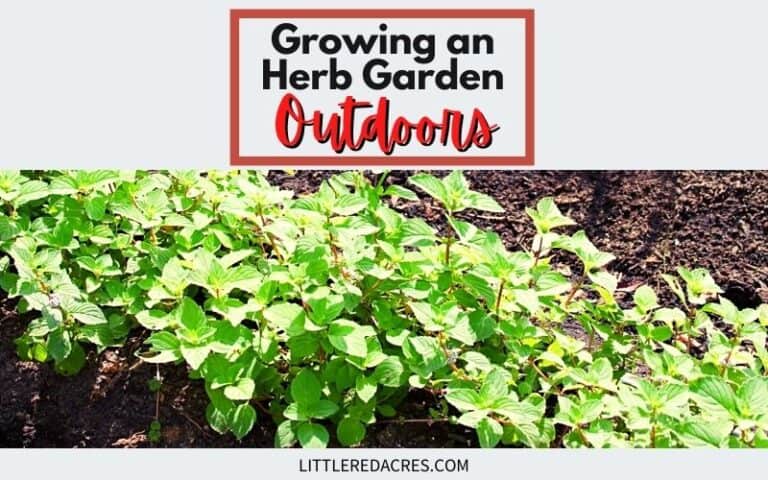7 Reasons to Start a Garden
Inside: There are many benefits and reasons to start a garden. It is a simple way to get back in touch with nature and it's a fulfilling activity.
There are many benefits and reasons to start a garden. It is a simple way to get back in touch with nature and it's also a fulfilling activity for people of all ages. Everyone can enjoy gardening, and for good reason! Gardening can be therapeutic, educational, and healthy.
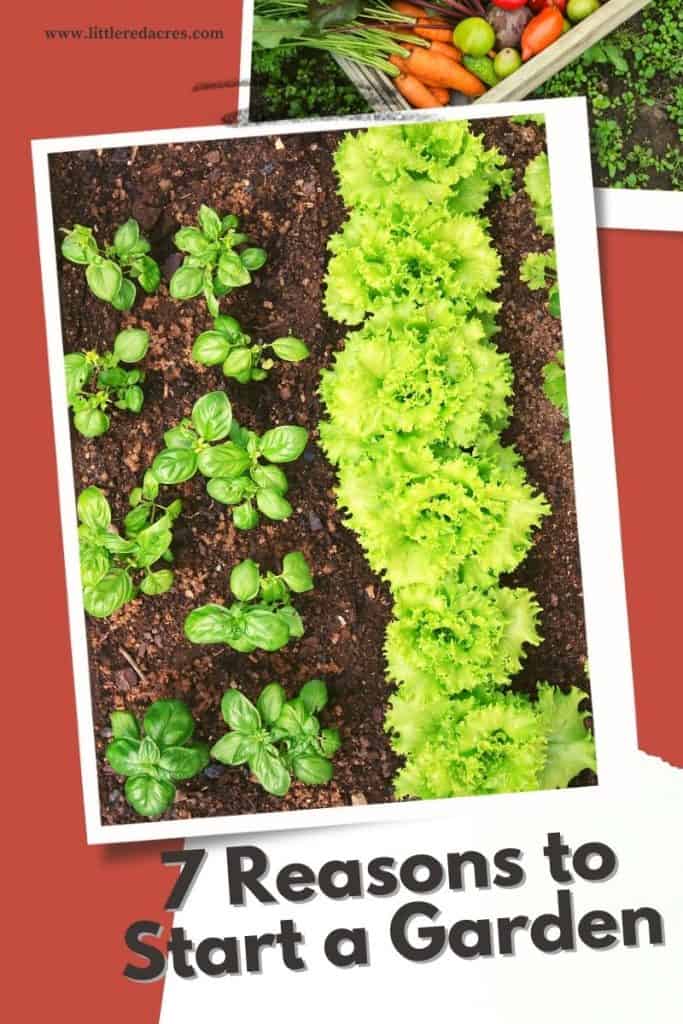
This post may contain affiliate links, see my disclosure policy for more information.
7 Reasons to Start a Garden
There are many different types of gardens you can plant such as herb or vegetable gardens, flower gardens, and even fruit trees. You can start your garden in containers, or raised beds.
Whatever works best for your situation is what will keep your garden happy!
If you don’t have much space, you should look into container gardening or even square-foot gardening. Both options teach you the best way to maximize the limited amount of space you have.
You can grow almost anything in containers, and the whole family can help you create your successful garden.
Get updates & freebies delivered to your inbox!
Your Family Can Eat Healthier
When you’re gardening, you know what you’re putting into your garden. There can be many health concerns with buying vegetables at the store that include various chemicals being used.
Aside from the possible chemical use, fresh vegetables are 50% higher in nutrients than when they are shipped long distances.
When you grow your own vegetables, you know how they are cleaned. Not only are they healthier, but they also taste better, too! There are no chemicals being used in your own garden and you know exactly what is going into your food.
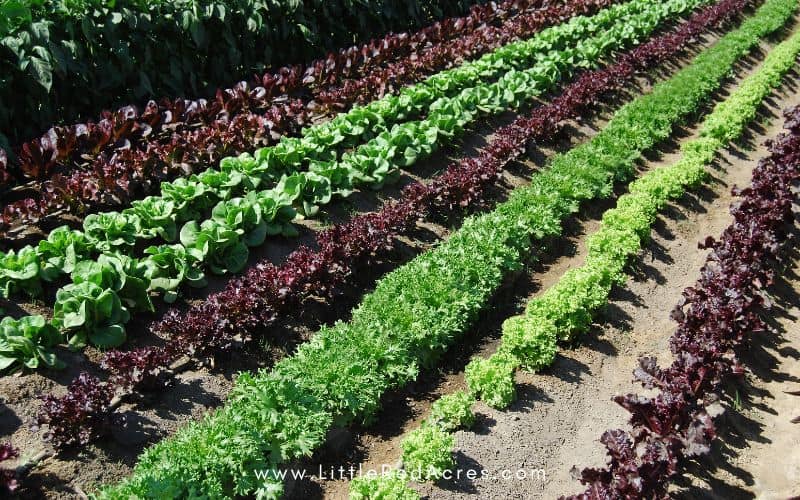
Save Money at the Grocery Store
The cost of vegetables, especially organic vegetables, continues to go up. Gardening can reduce your grocery bill in the long term.
You can buy a whole pack of seeds that can produce a year's supply of every vegetable for the same price it would cost for one week's worth.
The money you spend on your garden is an investment. The outcome costs you less than buying vegetables at the store, and they taste better. And once you learn to seed save, then your cost to grow a garden is even lower.
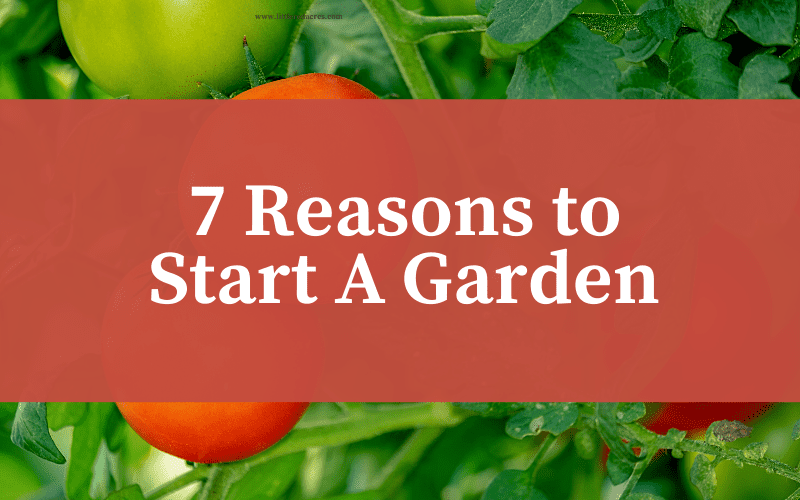
Self-Therapy
Not only does gardening include physical therapy, but it is also great for your mental health. A garden offers peace, beauty, and tranquility. The results of gardening can also be a greater sense of mental well-being and peacefulness. You will be proud of what you grew from seed!
I have been known to hide in the garden snacking on fresh sugar peas.
Goal Setting
Gardening makes it easy to set small milestones that are simple to hit. Setting goals helps trigger new behaviors and helps guide your focus. Setting goals is a great form of motivation that is also beneficial to mental health.
Goals provide direction and can give a sense of personal satisfaction. The act of setting goals adds a sense of purpose to your life. Your mind will naturally rise to the occasion to meet each goal you set.
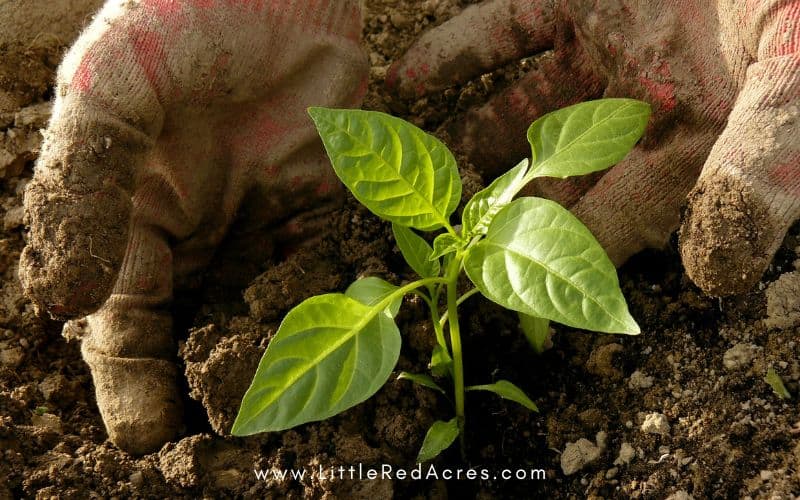
In Case of Emergency
In a survival situation, growing your food is critical. You can build a greenhouse for very little money or work with just sunlight. A few fruit plants or vegetables in pots are more than enough to keep you alive and maintain some semblance of normalcy.
Helps the Bees
Bees are one of the most important animal pollinators in nature. Bees visit gardens to collect nectar and pollen as food for themselves.
Not only will the garden benefit the bees, but the bees will benefit your garden. Pollination is critical for plants to reproduce and produce seeds.
The reasons to start a garden are plentiful. Gardening can be therapeutic, and it gives you your own food source in the event of an emergency or disaster.
Frequently Asked Questions
What is the best layout for a vegetable garden? As a general rule, put tall veggies toward the back of the bed, mid-sized ones in the middle, and smaller plants in the front or as a border. Consider adding pollinator plants to attract beneficial insects that can not only help you get a better harvest, but will also prey on garden pests.
What is the most difficult vegetable to grow? Artichoke.
How long do carrots take to grow? Carrots should be ready for harvest 70 to 80 days after planting. Pull them from the soil when the roots are 1 to 1½ inches in diameter.

Want More?
8 Essential Garden Tools for Beginners

